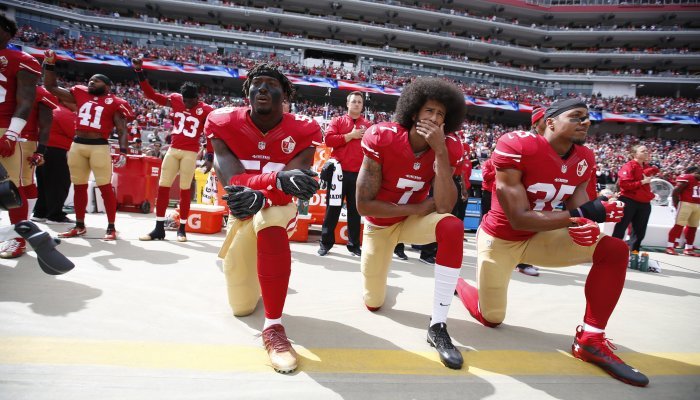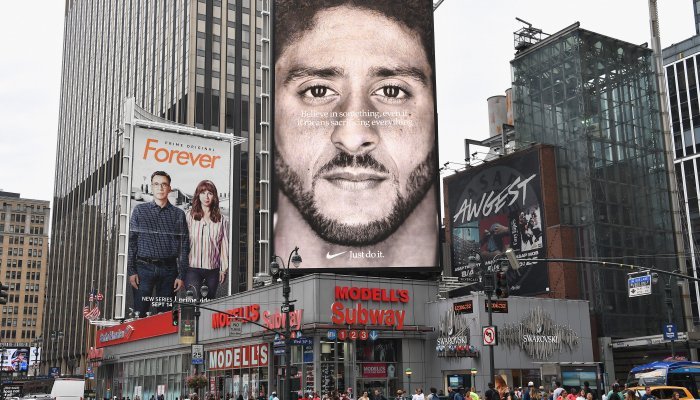This new layer of corporate responsibility is proving to be lifesaving – or fatal – for a company’s brand reputation.
When the Supreme Court in America overturned Roe vs Wade – the ruling that has allowed legal abortions since 1973 – major corporations immediately announced that they would add abortion travel costs to employee benefits. These new benefits would enable employees to seek abortion care and services if they live in a state where the procedure is deemed illegal.
The companies announcing the new travel benefits included major multinational corporations like Amazon, Condé Nast, Estee Lauder, Goldman Sachs, Ikea, Kroger, Microsoft, Paramount, Procter & Gamble, Starbucks, Tesla, and Walt Disney.
The wide variety of sectors represented in this move is telling. It shows a willingness for the corporate world to wade into the murky waters of politics and take a stand, very vocally and very publicly, despite the risks. And the risks are enormous.
The abortion debate, as with most decisions tethered to politics, is divisive and polarising. For corporates to make their political stance known, they risk either gaining new customers or losing the loyalty of existing ones. Taking a stance also unearths nuances which add more complexities. For example, customers might not only stop buying a brand if it supports the “wrong” side of an issue but also if the brand supports it in the “wrong way”.
But in an era of identity politics and social justice causes, this form of “value declaration” is expected of any consumer-facing company. And if companies want to reel in their future customers (i.e., Gen Z), then that social justice barometer just keeps climbing.
The back story
In 2016, the American footballer, Colin Kaepernick, famously took the knee during the American national anthem to protest against racism, social inequality and police brutality. This symbolic gesture ignited debate in America but has since sparked a global movement of non-racism in sport, and to this day is used in other sports before the start of a game.
Nike, who had partnered with Kaepernick since 2012, was put in a difficult position.
After he took the knee, he drew the ire of the president at the time, Donald Trump, the NFL considered him a pariah, and Nike’s marketing division was unsure what to do with their relationship with a professional football player who was not playing football. (Kaepernick left the San Francisco 49ers after the storm erupted.)
However, Nike continued to partner with Kaepernick, eventually embraced the controversy, and launched its Dream Crazy campaign in 2018, which reignited the vitriolic debate. Astutely, Nike prepared themselves for the backlash and immediately released a ‘safety guide’ for the anti-Nike customers who posted videos of themselves burning their Nike merchandise.
As risky as it was, Nike’s endorsement of Kaepernick became a challenge to other brands and highlighted the inextricable link between social justice issues, brand alignment and brand reputation.
Today, brands are expected to be vocal about various issues, from supporting LGBTQI pride month to being transparent about their ESG ratings. However, they also risk being accused of “woke washing” should their message be inconsistent with company policy or simply read as inauthentic.
The slippery slope
But while the support of local social justice issues can be contained and managed, multi-national brands soon discovered the pitfalls of commenting on socio-political issues outside their home country.
In 2019, a seemingly harmless tweet from Daryl Morey, GM of the basketball team Houston Rockets, in support of the pro-democracy demonstrators in Hong Kong, sparked an international diplomatic row. Morey’s tweet – 'Fight for Freedom. Stand with Hong Kong' – accepted as a right to express an individual opinion in America, was not received in the same light in China.
The National Basketball Association’s (NBA) media partners in China, Tencent, and Chinese state broadcaster CCTV, immediately suspended broadcasting of the franchise’s games, while the Chinese sports apparel brand, Li Ning, distanced itself from the “upsetting comments”.
Over the past two decades, the NBA has spent millions of dollars and countless hours in its quest to become the pre-eminent western sports franchise in China. One tweet put that ambition in jeopardy. Morey was forced to issue a grovelling apology.
It proved to be a year of grovelling apologies to Beijing. Luxury fashion brands Dior and Versace apologised for excluding territories like Macau, Hong Kong and Taiwan, which China considers part of its national sovereignty. Versace had produced t-shirts that implied that Macau and Hong Kong were independent territories, while a Dior employee used a map of China that excluded Taiwan in a presentation. China is a key market for all luxury brands, with Chinese customers making up a third of global spend.
Tech companies like Apple also felt the wrath of China. During the Hong Kong protests, an app that allowed users to track the movements of police in Hong Kong was distributed, pulled, reinstated, and then pulled again from its online store.
The threat within
While CEOs grapple with their CPR policies, another equally disruptive threat to CPR is a revolt from within.
As social justice issues blur into business, there is growing anger over corporate hypocrisy and shareholder greed to the point that employees now question C-Suite decisions over where companies do business – and with whom.
In 2017, Google was forced to address employee consternation over its commercial deals in China. Google quit China in 2010 in protest of the country's censorship laws, but workers discovered that it had been secretly working on a new Chinese search engine, codenamed Dragonfly. Employees were unhappy that they had been unwittingly working on technology that would help China suppress freedom of expression.
A year later, 20,000 Google employees walked off the job protesting the company’s handling of sexual harassment allegations. The walkout was over an internal social justice issue rather than a geopolitical one, but it was nevertheless a bellwether of workforce uprisings against company executives.
Most of the CPR issues have been with China due to the size of its consumer market and supply chain dominance, but the war in Ukraine has forced other multinational companies to declare their geopolitical allegiance. Global sanctions against Russia have forced brands to choose between profit and brand reputation.
In support of Ukraine, Chanel had to watch Russian influencers post videos of themselves cutting up their Chanel handbags in protest after they were barred from buying the brand.
As Ben Hunt of Epsilon Theory (the investment and risk management consultancy) says: “Do you want to preserve your authenticity and your brand, or do you want to preserve your earnings guidance and share price? Choose one. You can’t have both.”
And therein lies the corporate dilemma. Seemingly minor undercurrents like stakeholder capitalism, ESG ratings and identity politics have quickly gained momentum and are fast re-shaping how companies are led and managed.
For CEOs and boards, the looming question is whether CPR has opened a Pandora’s box that puts moral considerations at the forefront of where and with whom a company does business and how they will have to justify those decisions. For example, if companies are prepared to make a stand on behalf of the Ukrainians, why are they not prepared to make a stand on behalf of the Uighurs, the Rohingya, or other oppressed peoples?
It's a very slippery slope…
Bystander brands (aka mercenary brands)
“Bystander brands” (a term coined by The Conversation) can be described as ‘second movers’ – i.e., brands that try to appeal to disaffected consumers of rival brands who are offended by the activist stance taken by a brand. Bystander brands position themselves as ‘free agents’ with no fixed brand allegiances. This strategy is just as risky as being upfront about brand values. Bystander brands could benefit from disaffected consumers in the short term, but customer loyalty is increasingly cemented on personal values mirrored. In the long run, fence-sitting is no longer a wise business strategy.







